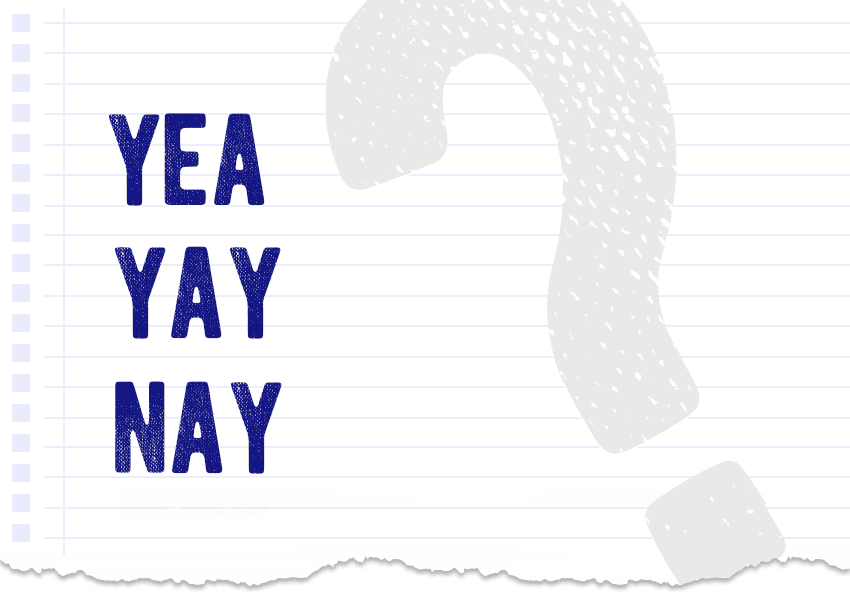Yea, yay or nay – what’s the difference?
Yea, yay or nay? If one wants to use the language the way native English speakers do, they not only need to know the ins and outs of grammar and vocabulary but also delve into slang. By understanding the use of yea, yay and nay, you are off to a great start!

Yea, yay or nay. Yea – meaning and usage
The adverb yea derives from the affirmation yes and is used to express agreement. It occurs most often in spoken language, songs and casual conversations. Its alternatives are the words yeah or yep.
Yea, yay or nay. Yay – meaning and usage
The word yay is an exclamation used in informal language. It is applied to express the approval, triumph, or satisfaction someone feels for a certain reason. What is more, yay might carry a meaning of a unit of measure when one holds arms out to show the size, e.g., He was about yay tall.
Yea, yay or nay. Nay – meaning and usage
The adverb nay is the antonym for the word yea, and, in informal speech, it means simply no. However, this is not its only meaning. In addition, nay might be used to emphasize a stronger or more appropriate word than the one used before, e.g., He was so pleased, nah delighted, to finally get to know you.
Yea, yay or nay – now it’s all clear! Examples in sentences
Everything was better when You would call and I’d be like “yea, babe”
LANY, Yea, Babe, No Way
He signs XO, hugs, hey/ I know it’s true love cause my heart goes “yay”
Lana Del Rey, BBM Baby
It was sweet, sure you swept me off my feet/ I miss you now and then, but would I do it all again? Nah!
Shania Twain, Nah!


